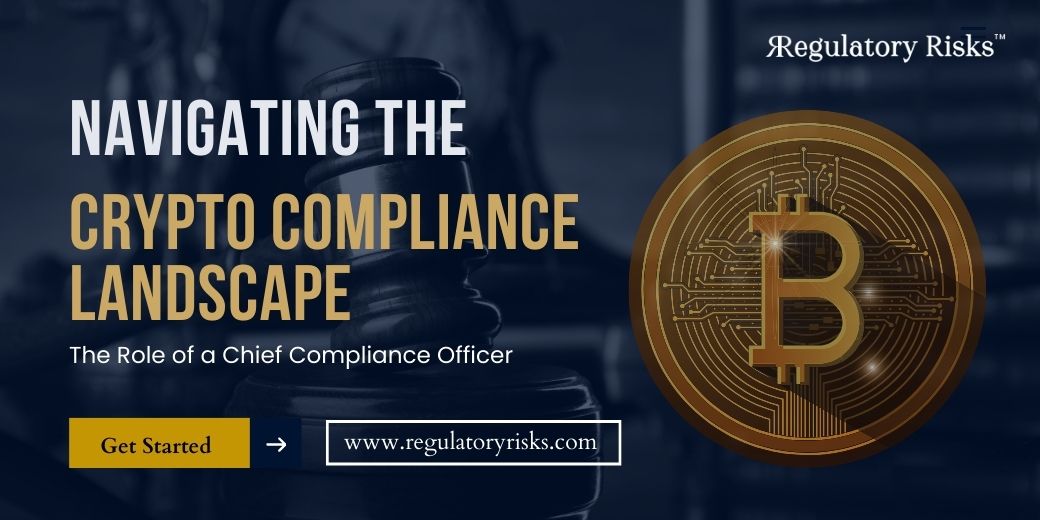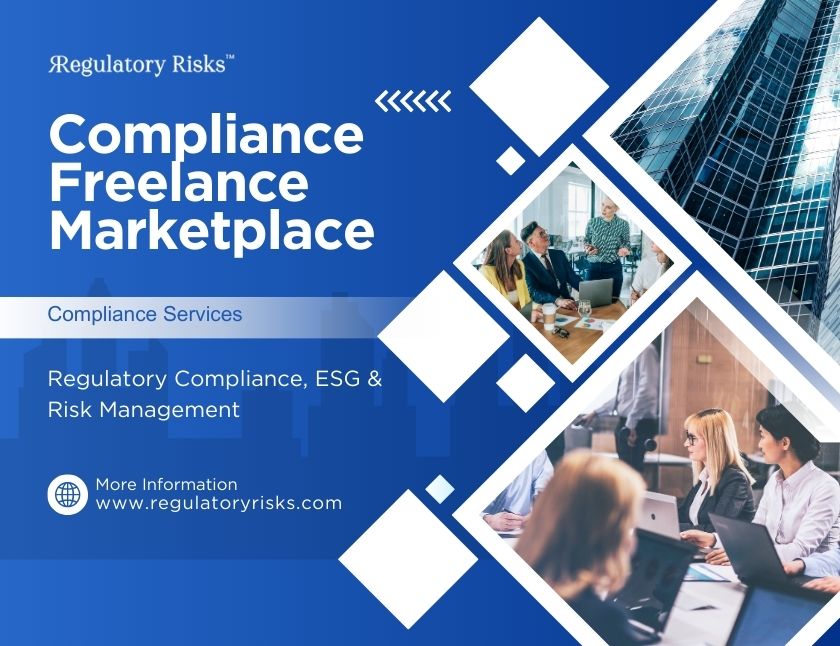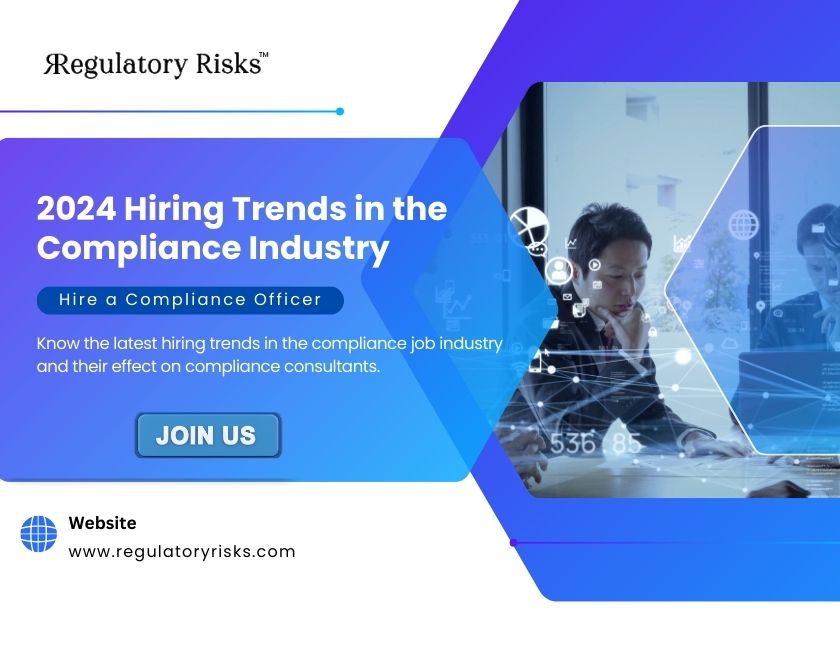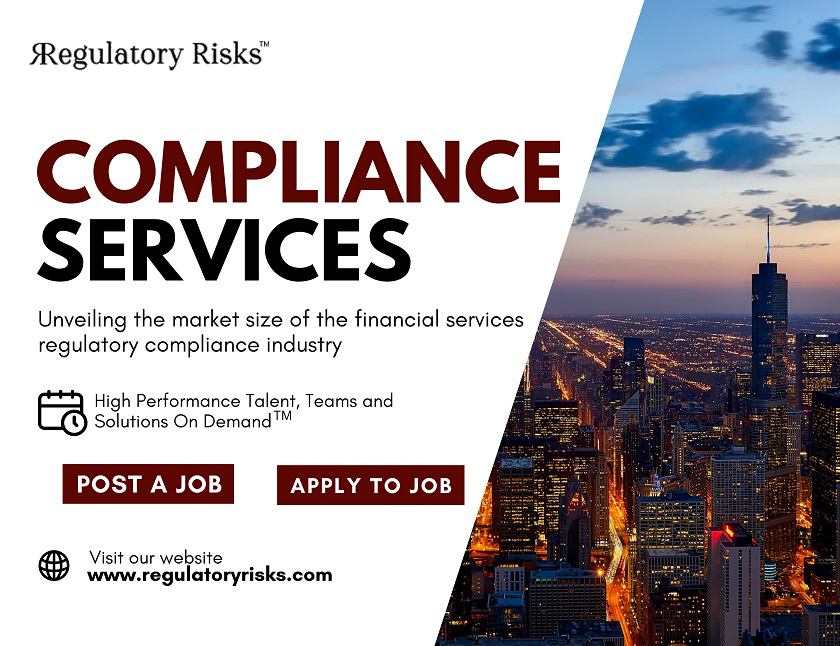In the rapidly evolving world of cryptocurrency, compliance with regulatory standards is not just a best practice—it's a necessity. With governments worldwide increasing their scrutiny of crypto asset managers, the role of a Chief Compliance Officer has become pivotal in ensuring adherence to regulations and mitigating risks. This article explores the importance of Chief Compliance Officers for crypto asset managers, highlights examples of companies facing consequences due to non-compliance, and introduces Regulatory Risks as a solution for outsourcing compliance needs.
The Vital Role of Chief Compliance Officers
Crypto asset managers are entrusted with handling digital assets worth millions, if not billions, of dollars. As such, they must navigate a complex web of regulations to operate legally and ethically. Enter the Chief Compliance Officer, whose primary responsibility is to ensure that the company adheres to relevant laws, regulations, and industry standards.
Chief Compliance Officers play a multifaceted role:
- Regulatory Adherence: They monitor changes in laws and regulations, interpret their implications, and implement necessary measures to ensure compliance. This includes Anti-Money Laundering (AML) and Know Your Customer (KYC) regulations, among others.
- Risk Management: Chief Compliance Officers assess and mitigate risks associated with non-compliance, such as legal penalties, reputational damage, and financial losses.
- Internal Oversight: They develop and enforce internal policies and procedures to foster a culture of compliance within the organization. This involves conducting regular audits and training sessions for employees.
- External Communication: Chief Compliance Officers act as liaisons between the company and regulatory authorities, responding to inquiries and providing necessary documentation.
Consequences of Non-Compliance
The consequences of non-compliance in the crypto industry can be severe, ranging from hefty fines to enforcement actions and even criminal charges. Several high-profile cases serve as cautionary tales:
- BitMEX: In 2020, the Commodity Futures Trading Commission (CFTC) charged BitMEX, a leading cryptocurrency derivatives exchange, with facilitating unregistered trading and violating AML regulations. The company agreed to pay a $100 million settlement to resolve the charges.
- Telegram: The SEC filed a lawsuit against Telegram, alleging that its $1.7 billion Initial Coin Offering (ICO) violated securities laws by failing to register its tokens. Telegram ultimately abandoned the project and agreed to return $1.2 billion to investors.
- Coinbase: in 2021, Coinbase, one of the largest cryptocurrency exchanges, settled with CFTF for $6.5 million over allegations of reckless false, misleading, or inaccurate reporting and wash trading.
- FTX: FTX faced a significant setback when Binance announced it would offload its holdings of FTSs cryptocurrency, FTT, and subsequently abandoned a rescue deal for the troubled exchange after carrying out due diligence checks. In addition, poor risk management and compliance frameworks were in place at FTX. The FTX collapse wiped out an estimated $200 billion off the crypto market in a matter of days.
- Binance: In 2023, Binance and its founder, Changpeng "CZ" Zhao, admitted to violating U.S. laws around money laundering and terror financing, agreeing to pay $4.3 billion in fines. The U.S. Justice Department’s probe into Binance started years earlier, and in the meantime, other U.S. Regulatory agencies launched their own actions against the crypto exchange.
- Crypto FX LLC: In 2024, the SEC charged 17 individuals for their roles in a $300 million Ponzi scheme involving Houston, Texas-based CryptoFX LLC, which targeted more than 40,000 predominantly Latino investors in the U.S. and two other countries.
These examples underscore the importance of robust compliance measures in the crypto industry and the potential ramifications of overlooking regulatory requirements.
Outsourcing Compliance Needs with Regulatory Risks.
Navigating the complex regulatory landscape can be daunting for crypto asset managers, especially smaller firms with limited resources. Regulatory Risks offers a solution by providing access to compliance consultants and services through its freelance compliance marketplace.
- Hire a Compliance Officer: Through Regulatory Risks, crypto asset managers can hire experienced Chief Compliance Officers on a freelance or contract basis. These professionals bring specialized knowledge and expertise to help companies develop and implement effective compliance strategies.
- Compliance Consultants: In addition to individual Chief Compliance Officers, Regulatory Risks offers access to a network of compliance consultants who can provide tailored guidance and support. Whether it's navigating specific regulations or conducting comprehensive compliance audits, these consultants offer valuable insights to ensure regulatory adherence.
- Compliance Services: Regulatory Risks offers a range of compliance services tailored to the needs of crypto asset managers. From AML/KYC compliance to regulatory reporting and risk assessment, these services help companies stay ahead of regulatory requirements and mitigate potential risks.
- Chief Compliance Officers (CCOs): For companies seeking a more permanent compliance solution, Regulatory Risks facilitates the hiring of Chief Compliance Officers (CCOs) on a full-time or part-time basis. These senior executives oversee all aspects of compliance and play a crucial role in shaping the company's compliance culture.
- Freelance Compliance Marketplace: Regulatory Risks serves as a centralized platform where crypto asset managers can connect with compliance professionals from around the world. The freelance marketplace offers flexibility and scalability, allowing companies to access compliance expertise on-demand without the overhead costs of hiring full-time staff.
In conclusion, Chief Compliance Officers play a pivotal role in helping crypto asset managers navigate the regulatory landscape and mitigate risks. By leveraging the services offered by Regulatory Risks, companies can outsource their compliance needs and ensure adherence to regulatory standards, thereby safeguarding their reputation and future success in the crypto industry.
Regulatory Risks is a freelance marketplace that connects your business with Chief Compliance Officers, compliance consultants and compliance services in the market. Whether you need a Chief Compliance Officer for a short-term project or longer-term compliance jobs, Regulatory Risks is your firm’s on-demand flexible specialist resourcing solution.
The Regulatory Risks platform is easy to use, secure and transparent. You can browse through profiles of vetted and verified compliance consultants and schedule video interviews. Hire a Compliance Officer today.




